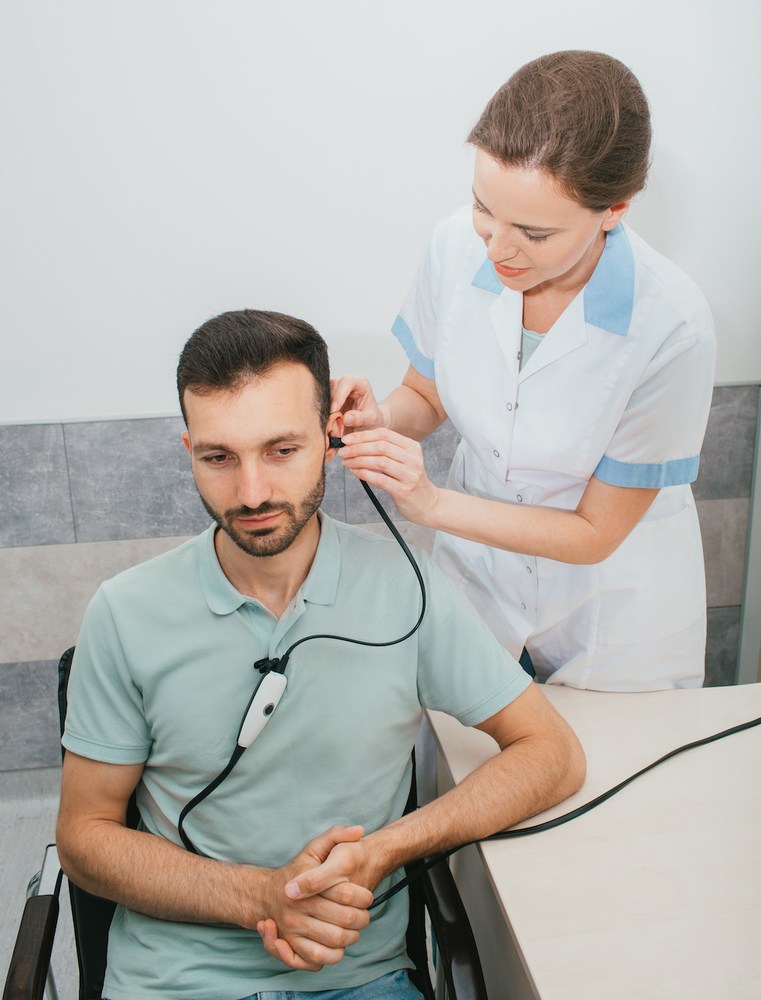How Hearing Aids Can Improve Your Social Life and Relationships
Hearing loss often affects more than just the ability to pick up sounds

If an audiologist carries out a hearing test, it’s likely that they’ll conduct a series of tests to understand your hearing loss. These are the most common tests for discovering and diagnosing hearing loss and can be used on people of all ages. If you’ve never been for a hearing test before and want to get some idea of what to expect, here’s what you need to know about them.
A pure-tone test is so called because pure tones are used to determine your current level of hearing. This means sounds are played into the ear and all you have to do is indicate when you can hear them, usually by raising a hand or finger or in some cases by pressing a button.
The range of the tones will be within the normal confines of speech, meaning whatever you hear will be no lower than a whisper and no louder than a typical raised voice. This is a non-invasive test and is used most often to test someone’s hearing level.
Otoacoustic emissions testing checks how well the inner ear is working by measuring sound waves produced in response to clicks or tones. These waves can help estimate how well the cochlea, a part of the inner ear, is functioning. This test is often used for newborns and young children because their inner ears are still developing, and they might have hearing loss that’s not easily noticed. The results can show whether the hearing loss is due to issues with the outer or middle ear or if it’s a problem with the inner ear. This information is useful for deciding on the best treatment for the child.
Speech audiometry is the most common test used to determine how well someone understands conversation. You will sit with a headset on and receive a list of words at different volumes. An audiologist will ask you to repeat these words back to them, to see how clearly you can hear each one and whether or not you can understand what’s being said.
This will allow them to determine how well you can pick up on sounds. Women and children’s voices are often the hardest to pick up when you have a degree of hearing loss, so this is an important test.
If you’re unsure about your hearing health right now, or you think you may be living with hearing loss, talk to an audiologist and get a hearing test scheduled. They may do one of the tests above, or they may do a test that’s a little more specific; it’ll depend on your symptoms.
If you ever need clarification about what the test is or how it will be carried out, be sure to ask. An audiologist will be more than willing to let you know what they’re about to do. If you want to learn more about specific hearing tests, reach out to an audiologist.

Hearing loss often affects more than just the ability to pick up sounds

Dealing with hearing loss can be challenging, and understanding the

Keeping your hearing aids in good working condition is important for